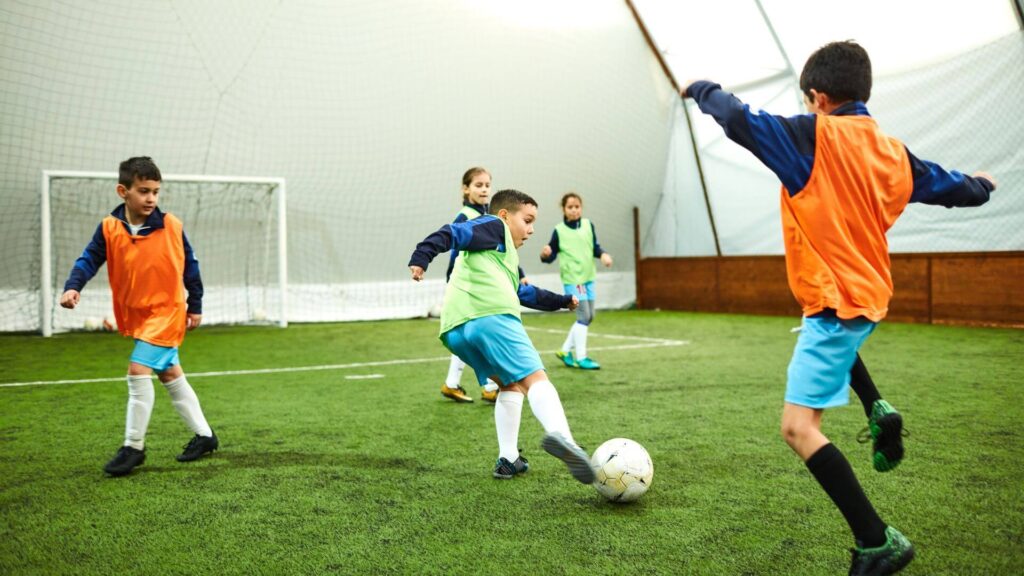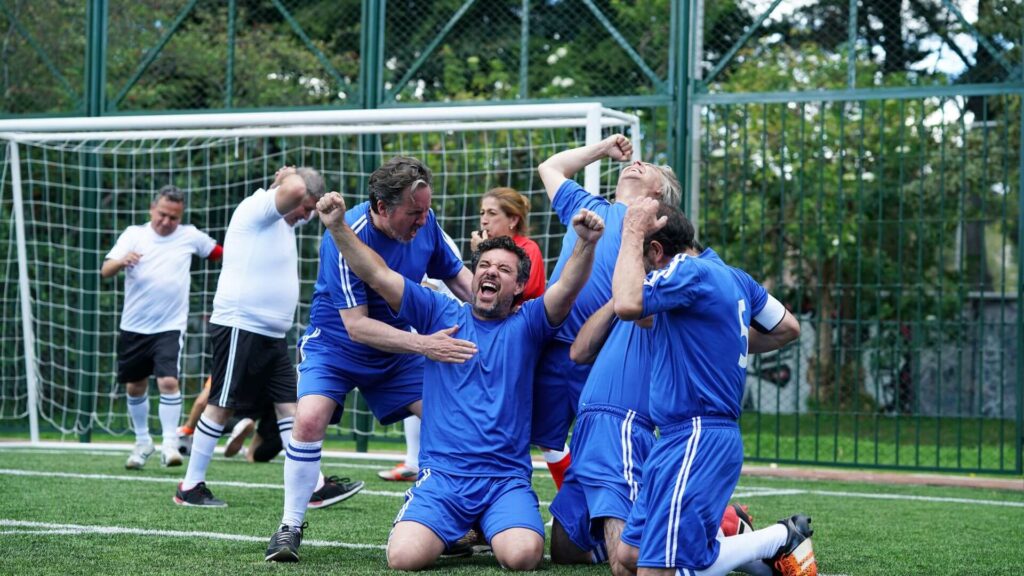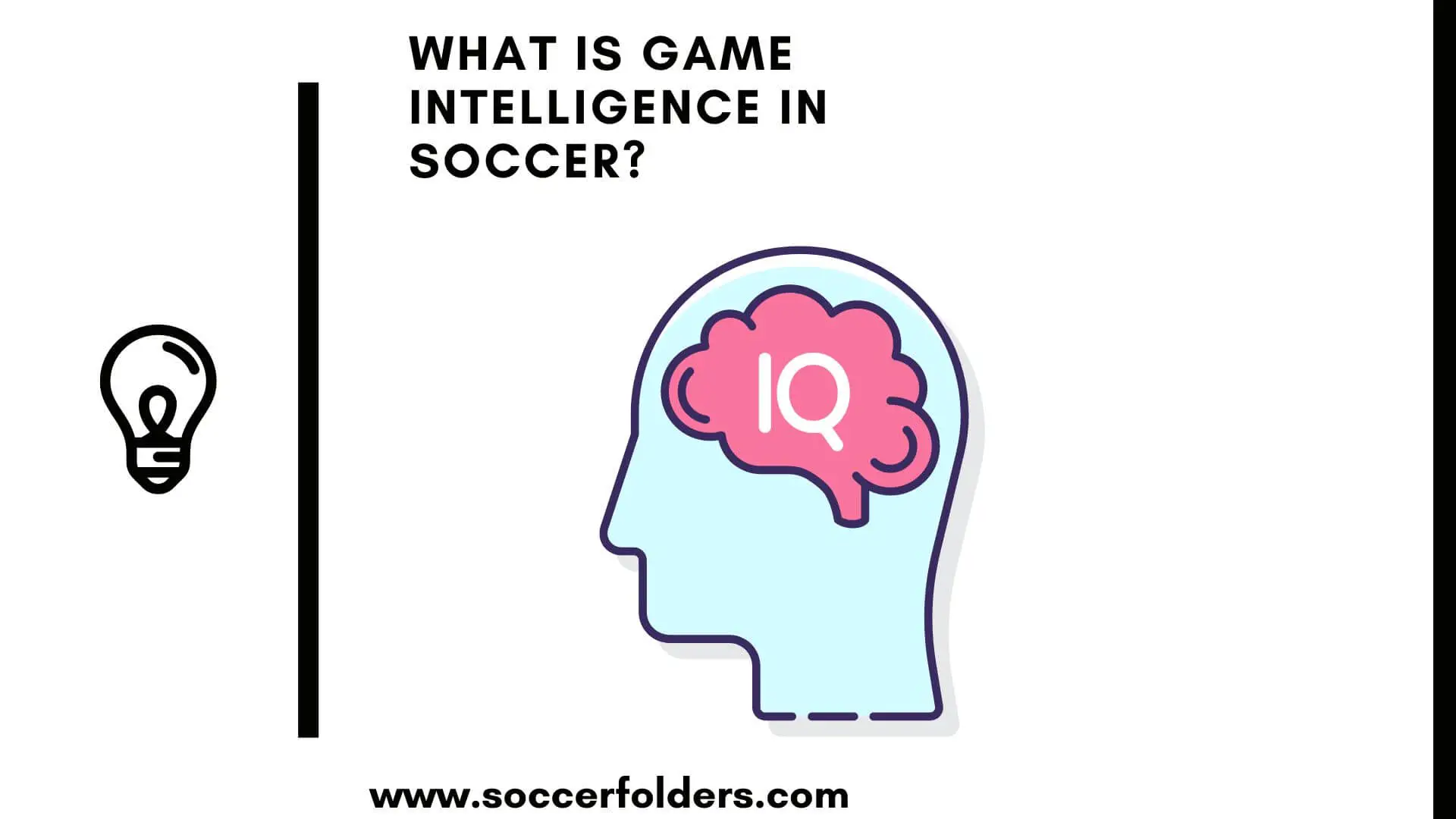Soccer is a game of skill, speed, and agility. While technique and physical fitness are essential to excel in the sport, the ability to read the game and make quick decisions is equally crucial.
This ability is commonly referred to as “game intelligence.”
In this article, we will explore what game intelligence in soccer is, how it is developed, and why it is vital for success in the sport.
Let’s get started.
- What is Game Intelligence in Soccer?
- How do you Develop Soccer Intelligence?
- Why is Game Intelligence Vital for Success in Soccer?
- Role of Game Intelligence in Different Positions
- How Soccer Game Intelligence can be Measured
- The Relationship between Game Intelligence and Physical Attributes
- The Impact of Technology on Game Intelligence
- Final Word
What is Game Intelligence in Soccer?
Game intelligence, also known as soccer IQ, is the ability of a player to understand and read the game. It involves a combination of cognitive and physical skills, as well as technical and tactical knowledge of the sport. A player with high game intelligence can anticipate the movement of their teammates and opponents, make quick decisions, and execute those decisions effectively.
Players with high game intelligence are often described as having a “football brain”/”soccer brain.”
These players are often the ones who can see the play developing before it happens, make accurate passes, and create scoring opportunities for themselves and their teammates.

They have a deep understanding of the game and can adjust their play based on the situation.
How do you Develop Soccer Intelligence?
Game intelligence is a skill that can be developed over time. Here are some ways that you can improve your game intelligence in soccer:
- Watch soccer games: Watching soccer games can be an excellent way to learn more about the sport. By observing how the game is played at the highest level, you can pick up new tactics and techniques that you can apply to your own game.
- Play in different positions: Playing in different positions can help players develop a better understanding of the game. For example, a striker who plays as a central midfielder can learn more about the game’s tactical aspects and improve their passing skills.
- Practice decision-making: One of the essential aspects of game intelligence is the ability to make quick and effective decisions. Players can improve their decision-making skills by practising in different scenarios. For example, coaches can set up small-sided games that force players to make quick decisions with limited time and space.
- Study opponents: Understanding opponents’ strengths and weaknesses can give you an edge in the game. By studying opponents, you can anticipate their movements, make better decisions, and potentially create scoring opportunities.
- Play in competitive environments: Playing in competitive environments, such as leagues and tournaments, can help you develop your game intelligence. The pressure and intensity of these games can help players improve their decision-making skills and adapt to different situations.
Why is Game Intelligence Vital for Success in Soccer?

Game intelligence is essential for success in soccer for several reasons. Here are some of the key reasons why game intelligence matters in soccer:
- Creates scoring opportunities: Players with high game intelligence can create scoring opportunities for themselves and their teammates. By anticipating the movement of their opponents and teammates, they can make accurate passes and create space for themselves and their teammates to score.
- Improves defensive abilities: Game intelligence is not just about attacking play. Defenders with high game intelligence can anticipate opponents’ movements, make effective tackles, and intercept passes, preventing scoring opportunities.
- Helps players adapt to different situations: Soccer is a dynamic game, and situations can change quickly. Players with high game intelligence can adapt to different situations, making quick decisions that can change the outcome of the game.
- Increases team performance: Players with high game intelligence can help their team perform better. By making effective decisions and creating scoring opportunities, they can contribute to the team’s success.
Role of Game Intelligence in Different Positions
The role of game intelligence can vary depending on the position a player occupies on the field.
For example, forwards with high game intelligence can anticipate the movements of defenders and make runs that create scoring opportunities.
Midfielders with high game intelligence can control the tempo of the game by making quick and accurate passes and adjusting their position on the field to support their teammates.
Defenders with high game intelligence can read the movements of opposing attackers, make effective tackles, and intercept passes to prevent scoring opportunities.
Goalkeepers with high game intelligence can position themselves to make saves and communicate with their defenders to prevent opposition attacks.
In short, game intelligence is an essential trait for players in all positions, as it allows them to make better decisions and adapt to different situations on the field.
How Soccer Game Intelligence can be Measured
Measuring game intelligence is a complex task that requires a combination of cognitive and physical skills.
One way to measure game intelligence is through cognitive testing, which can include tasks such as decision-making exercises or memory tests.
Analysis of game performance data can also be used to measure game intelligence by tracking variables such as successful passes, tackles, and interceptions.
Some coaches and analysts may use video analysis to identify patterns in a player’s decision-making or movement on the field.
In addition, wearable sensors can be used to track physical movements and provide data on factors such as running speed and distance covered.
Ultimately, measuring game intelligence requires a multi-faceted approach that considers both cognitive and physical skills, as well as the specific demands of the position and the team’s style of play.
The Relationship between Game Intelligence and Physical Attributes
The relationship between game intelligence and physical attributes is complex and can vary depending on the position a player occupies on the field.
For example, forwards may need to rely more heavily on physical attributes such as speed and agility to create scoring opportunities, while defenders may need to rely more on game intelligence to anticipate and intercept opposing attacks.
In general, players with higher levels of game intelligence tend to be better at making decisions and adapting to changing situations on the field, which can give them an advantage over physically stronger or faster opponents.
However, a balance between game intelligence and physical attributes is important for success in soccer.
The Impact of Technology on Game Intelligence
The impact of technology on game intelligence has been significant in recent years, with advances in data analysis, video technology, and wearable sensors all providing new ways to measure and develop this crucial trait in soccer players.
For example, wearable sensors can track a player’s physical movements and provide data on factors such as running speed and distance covered, which can be used to monitor fitness levels and identify areas for improvement.
Data analysis tools can be used to track a player’s performance over time and identify trends in their decision-making or physical attributes.
Overall, technology has provided new opportunities for coaches and players to improve and measure game intelligence, leading to more effective training methods and better performance on the field.
Final Word
In conclusion, game intelligence in soccer is a crucial skill.
It involves a combination of cognitive and physical skills, technical and tactical knowledge, and experience.
Players can develop their game intelligence through various methods, such as watching games, practising decision-making, and playing in different positions.
Coaches can also help players improve their game intelligence by creating competitive environments and studying opponents.
By improving your game intelligence, you can create scoring opportunities, improve your defensive abilities, adapt to different situations, and increase your team’s performance.
Understanding game intelligence and developing it can be the key to achieving success in soccer.

